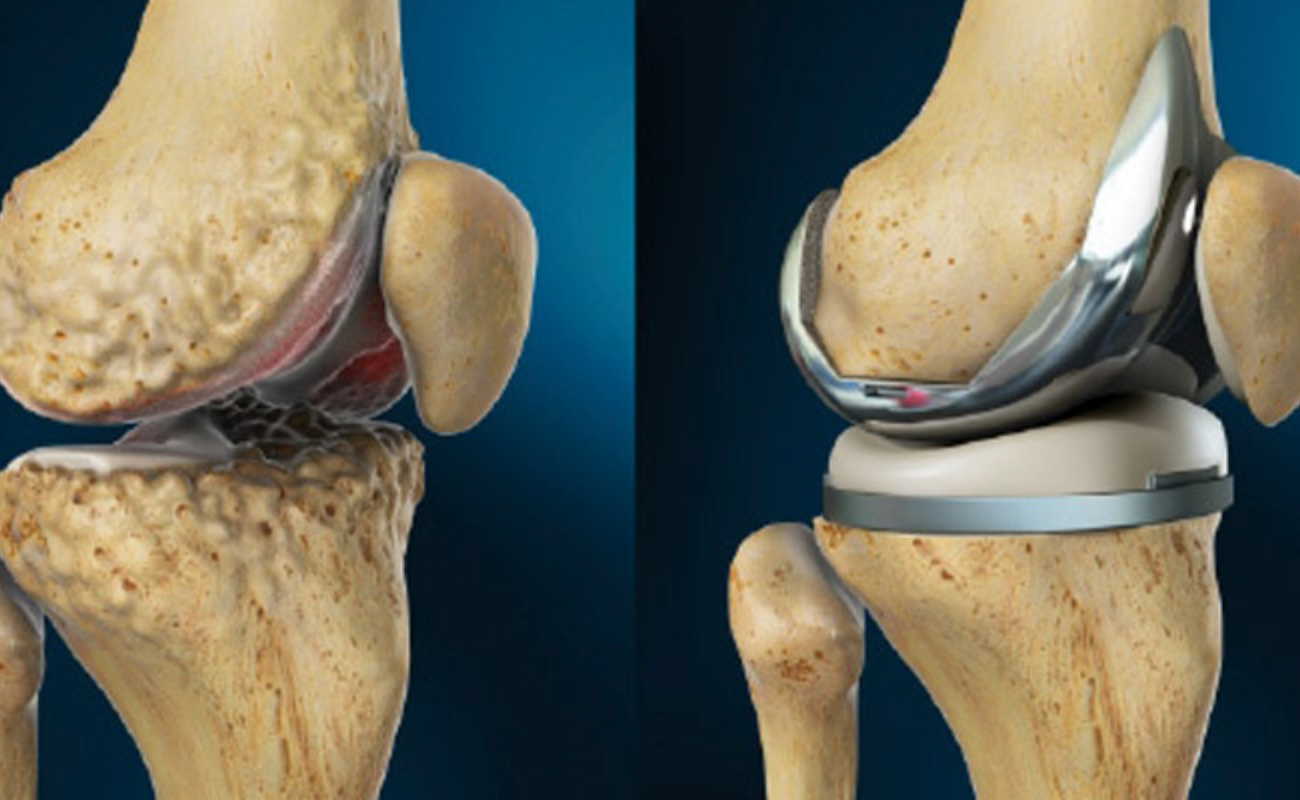Knee Replacement Surgery: When Is It Time?

August 11, 2023
Knee pain and mobility issues can significantly impact a person's quality of life. When conservative treatments fail to provide relief and daily activities become increasingly challenging, knee replacement surgery may be considered. This procedure involves removing damaged parts of the knee joint and replacing them with artificial implants. In this blog post, we will explore the signs that indicate it may be time for knee replacement surgery, the benefits and risks of the procedure, considerations for patient selection, and the recovery process.
Signs that Indicate the Need for Knee Replacement Surgery
Chronic Knee Pain
Persistent knee pain that affects daily activities and doesn't respond to conservative treatments such as medication, physical therapy, and injections may indicate the need for knee replacement surgery. If the pain interferes with sleep, limits mobility, and significantly impacts the quality of life, it is worth discussing with a healthcare professional.
Functional Limitations
In addition to chronic pain, functional limitations are another indicator that knee replacement surgery may be necessary. Difficulty walking, climbing stairs, squatting, and standing for long periods of time are all signs that knee replacement surgery should be considered.
Weakness in the leg muscles, joint deformity, and decreased range of motion may occur due to the degeneration of the knee joint. These limitations can lead to an increased risk of falls and difficulty with activities of daily living.
Joint Stiffness
Joint stiffness is another sign that may point to the need for knee replacement surgery. It is characterized by a loss of flexibility in the joint and can make it difficult to move the knee. Joint stiffness often leads to decreased range of motion which affects mobility and daily activities.
Additionally, it can cause pain and discomfort while walking or standing for prolonged periods of time. Other signs of joint stiffness include a crackling sensation when the knee is bent, swelling, and redness in the affected area.
Joint Instability
Joint instability is also a potential sign of the need for knee replacement surgery. This occurs when there are changes to the ligaments, tendons, and muscles supporting the knee joint, causing it to become loose and unstable. Patients may experience instability in their knees during activities such as walking or running, which can cause them to fall unexpectedly or feel like their leg will give out.
Other symptoms of instability include pain, swelling, and muscle weakness. Treatment usually focuses on strengthening the muscles around the knee joint to reduce pain and improve stability.
Benefits and Risks of Knee Replacement Surgery
Knee replacement surgery offers several potential benefits, including:
Pain Relief
The primary goal of knee replacement surgery is to alleviate chronic pain and improve overall quality of life. By replacing the damaged joint surfaces with artificial implants, the procedure can significantly reduce or eliminate knee pain, allowing individuals to engage in activities they previously couldn't due to pain.
Improved Mobility
Knee replacement surgery can restore mobility and function to the knee joint. By replacing damaged cartilage and improving joint alignment, individuals may experience improved range of motion, reduced stiffness, and increased ability to perform daily activities.
Enhanced Quality of Life
Successful knee replacement surgery can have a profound impact on an individual's overall quality of life. It can improve physical function, mental well-being, and social participation, allowing individuals to lead a more active and fulfilling life.
However, it is important to consider the potential risks and complications associated with knee replacement surgery, which can include infection, blood clots, implant loosening, nerve damage, and allergic reactions to anesthesia. These risks are generally low, but it is crucial to discuss them with a healthcare professional to make an informed decision.
Patient Selection and Considerations
Knee replacement surgery is typically considered when non-surgical treatments have failed to provide adequate pain relief and functional improvement. It is important to discuss the following factors with a healthcare professional to determine if knee replacement surgery is the right choice:
Severity of Symptoms
The severity of knee pain, functional limitations, and the impact on daily life play a crucial role in determining the appropriateness of knee replacement surgery. If the pain and limitations are significantly affecting quality of life, surgery may be recommended.
Overall Health
A comprehensive evaluation of overall health is necessary to assess the individual's ability to undergo surgery and recover successfully. Factors such as age, medical history, presence of chronic conditions, and lifestyle factors are taken into account to ensure the best possible outcome.
Expectations and Commitment
It is important for individuals considering knee replacement surgery to have realistic expectations about the outcomes and be committed to the rehabilitation process. Active participation in post-operative rehabilitation is essential for a successful recovery and long-term benefits.
The Recovery Process
The recovery process after knee replacement surgery involves several stages:
Hospital Stay
Most individuals undergoing knee replacement surgery stay in the hospital for a few days. During this time, pain management, wound care, and early mobilization under the guidance of physical therapists are emphasized.
Rehabilitation
Following discharge, rehabilitation plays a crucial role in restoring strength, flexibility, and function to the knee joint. Physical therapy exercises, gait training, and gradual increase in activities are prescribed to optimize recovery.
Pain Management
Medications for pain management are typically prescribed after surgery to ensure comfort during the recovery period. Pain medications are gradually reduced as the healing progresses.
Long-Term Follow-up
Regular follow-up appointments with the healthcare team are necessary to monitor the progress, address any concerns, and ensure the long-term success of the knee replacement.
Conclusion
In conclusion, knee replacement surgery is a viable option for individuals with chronic knee pain and functional limitations that do not respond to conservative treatments. By understanding the signs that indicate the need for surgery, considering the benefits and risks, and discussing individual circumstances with a healthcare professional, individuals can make an informed decision. Knee replacement surgery has the potential to provide significant pain relief, improve mobility, and enhance overall quality of life.
